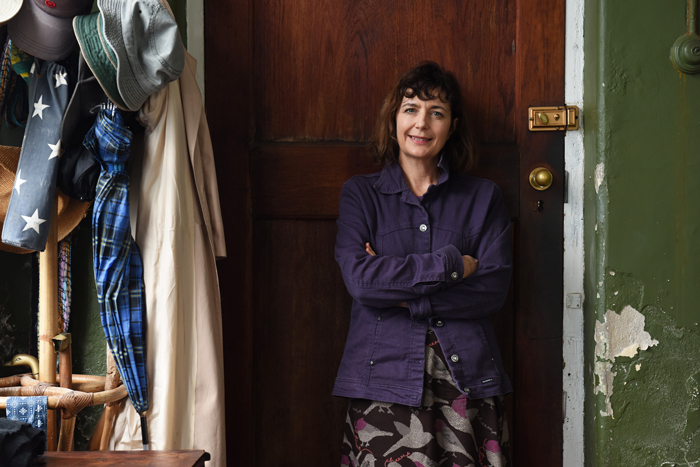Literary accolade for Dowling
11 July 2016 | Story by Newsroom
Lauded by critics as the South African Jane Austen for her uncanny ability to pen a comedy of manners (a description that quite embarrasses this Austen enthusiast), Dowling's work The Fetch beat out, among others, Athol Fugard, for the 2015 Herman Charles Bosman prize.
Although Dowling does not think competitiveness a helpful component in any writer, rewards such as this help with the quavering self-doubt and incredible loneliness that come with the occupation.
“I can't tell you how lonely, how many hours you sit alone, wondering if anybody will ever read this, ever care about this,” she said, smiling. Such an award feels as if she is being toasted by her readers, collectively, helping to restore a sense of self and direction as a writer.
This pleasure was made all the more poignant by the award's namesake, one of South Africa's greatest exponents of comedic writing.
“I am grateful that there is an acknowledgement that writing that is witty, that satirises society, but also looks at it with affection, is as valuable as deadly serious writing: that it doesn't lack art just because it makes people laugh and that has particularly worried me about South African literature,” Dowling enthused.
Dowling began her career as a tutor in UCT's English department, then as a lecturer at various other institutions. She spent 20 years freelancing as a writer and educator, before finding her way back to the slopes of Table Mountain and settling in the Centre for Extra-Mural Studies.
Dowling spends half her week at UCT, working with the entire intellectual capital of the university. For the remainder she is a full time poet and novelist. Although every part of a writer's life is absorbed into their written work, Dowling has yet to map out how a career at UCT will impact her detailed character sketches.
The personal as political
In this, her fourth novel, Dowling gave birth to the Cape village of Slangkop. Within this enclosed setting, as isolated as any of Austen's villages, Dowling explores how her morally contradictory characters interact with each other.
The resultant novel has critics sighing in collective relief. Dowling focuses on character and instead of penning broad political strokes, allows characters to simply be.
“If characters are South African, they come out of a political context and sometimes just the very fact that a character may not personally think about politics doesn't mean that they don't have a political life and identity,” she said.
From characters with entitled, white backgrounds, whose interactions are muddied by interlocking levels of colonial superiority, to those who love them through hard and unyielding work, to humanitarian-types, attempting to provide moral guidance, Dowling covers a full political spectrum in a deeply personal way.
Writing to understand the past
It was in a state of searching for a solution that Dowling began writing The Fetch. A writer begins with a problem, she says, with something they do not understand. For Dowling, it was the haunting death of her ex-husband, a loved and charismatic man, who nearly died in absolute isolation.
“The novel comes out of rearranging the material that I have and inventing new material, so that I can understand how was it possible in an age of antiretrovirals, in an age of help groups and support groups that meet, of LifeLines, of everything that we have: how is it possible for somebody to die a lonely death of AIDS.”
Dowling didn't want that to happen. So when one character faced a similar death, he did so surrounded by loved ones.
In her exploration of the moral landscape that presented itself in Slangkop, Dowling saw how love came to the fore time and again, often in unexpected ways.
The ego and selfishness of her protagonist is somehow able to bring out love in others. Faced with such a person, Slangkop holds together as a community. Community, Dowling confesses, is really something she believes in.
Even the book's preoccupation with sex in its varied nurturing and destructive forms, is really about love. “Sex leaves behind problems that love has to solve,” she explained.
Although there is much to find in the form of moral resolution, Dowling's real hope is to comfort and console her readers.
“I think I see the fault lines of pain in the country, but mostly in individual lives.”
Story Kate-Lyn Moore Photos Michael Hammond
 This work is licensed under a Creative Commons Attribution-NoDerivatives 4.0 International License.
This work is licensed under a Creative Commons Attribution-NoDerivatives 4.0 International License.
Please view the republishing articles page for more information.










